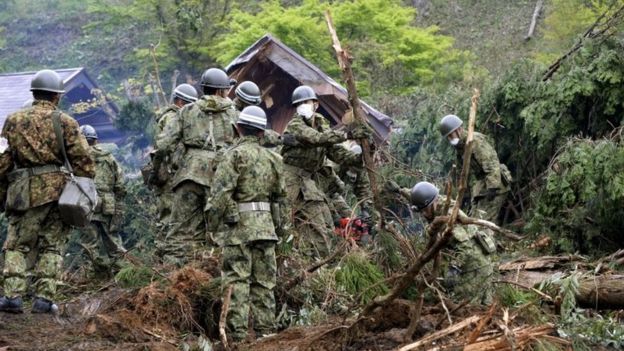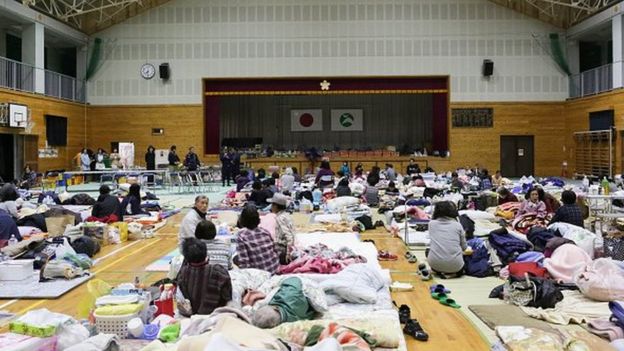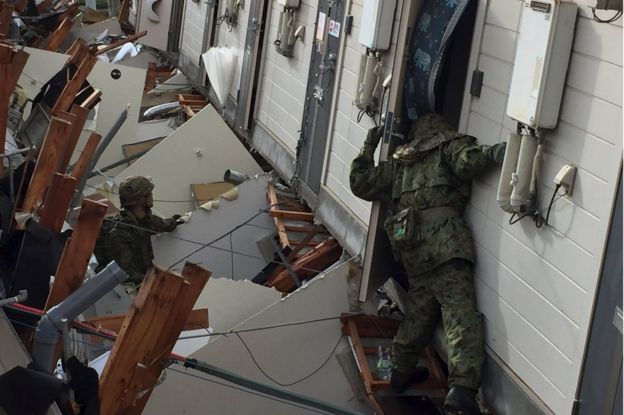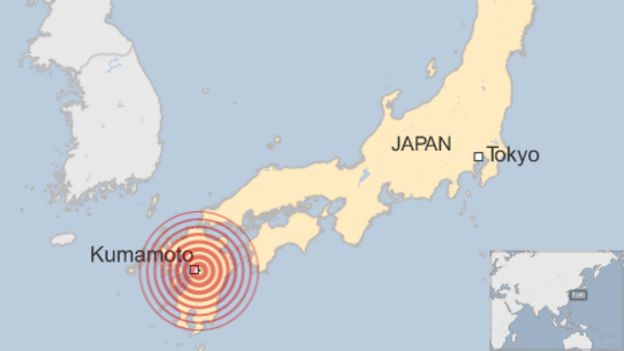Nearly 250,000 people have been told to leave their homes amid fears of further quakes in Japan, an aid agency says.
Naoki Kokawa, advisor to the Japanese Red Cross Society, told the BBC that more medical teams were being dispatched to evacuation centres.
Two powerful earthquakes hit the south-western island of Kyushu last week killing at least 42 people.
Japan's meteorological agency has also warned that more tremors are likely to hit in the coming days.
More than 1,000 people are injured and there has been widespread damage to buildings, houses, roads and bridges.
About 30,000 rescue workers are looking for survivors. Police said 11 people are still missing, public broadcaster NHK reported.
 Reuters
Reuters Getty Images
Getty Images
Some evacuees have complained about limited food supplies, saying they had just two rice balls for dinner, reports said. Others complained about a lack of water.
"Without water and electricity, we can't do anything. Without the TV, we can't even get information about disaster relief operations,'' Megumi Kudo told the Associated Press while queuing for water at a community centre in Aso city.
"We can't take a bath - not even a shower.''
"We are striving to improve living conditions for the people who have sought refuge," he said.
"Today, tomorrow, the day after tomorrow, we will be working toward a full recovery."
 Reuters
Reuters
A 61-year-old woman was found dead near her collapsed house in Kumamoto prefecture on Sunday, Japan Times reported.
Saturday's magnitude-7.3 quake struck at 01:25 (15:25 GMT on Friday) close to the city of Kumamoto, which had been hit by a magnitude-6.4 quake on Thursday night.
Both quakes were shallow, causing huge damage to roads, bridges and tunnels. Big landslides cut off remote mountain villages.
The US military said it was preparing to provide aerial support for Japan's relief efforts. America has several military bases and about 50,000 troops in the country.

The earthquakes are the biggest to have hit Japan since 2011 when a 9.0 magnitude quake caused a huge tsunami, leaving more then 19,000 dead and missing.
Japan is regularly hit by earthquakes but strict building codes mean they usually cause minimal damage.
http://www.bbc.com/news/world-asia-36069405

No comments :
Post a Comment